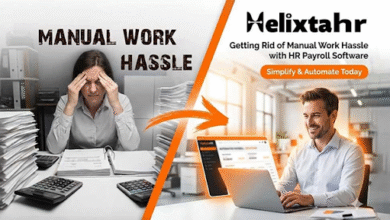Understanding VPS Hosting: A Simple Guide for Website Owners

Running a website today feels a bit like managing a small business. You need the right foundation to grow, and that’s where choosing the right hosting comes into play. If you’ve been researching hosting options, you’ve probably come across VPS hosting. Let me break down what it is and why it might be exactly what your website needs.
What Makes VPS Hosting Different?
Think of VPS hosting like living in an apartment building. You have your own private space with a locked door, your own kitchen, and your own bathroom. Sure, you share the building with other tenants, but what happens in your apartment stays in your apartment. Nobody else can use your resources or peek into your space.
That’s essentially how VPS hosting works. Your website lives on a server that’s divided into separate virtual compartments. Each compartment acts like its own independent server, even though multiple websites share the same physical machine. You get dedicated resources like RAM, CPU power, and storage that belong only to you.
Compare this to shared hosting, where everyone shares everything. It’s like living in a dormitory where you share the kitchen, bathroom, and living space with dozens of other people. If someone decides to cook a five-course meal at midnight, everyone feels the impact. Similarly, if one website on shared hosting gets a traffic spike, all the other sites slow down.
Why People Switch to VPS Hosting
I’ve talked to countless website owners who made the jump from shared hosting to VPS hosting, and their reasons are usually pretty similar. Performance sits at the top of the list. When your website has dedicated resources, it loads faster. Pages snap open instead of crawling along. Your visitors don’t sit there watching a loading spinner, wondering if they should just close the tab.
Control is another big factor. With VPS hosting, you can install custom software, tweak server settings, and configure things exactly how you need them. Want to run a specific version of PHP? No problem. Need to adjust memory limits? Go right ahead. This flexibility becomes essential as your website grows and your needs become more specific.
Security gets a serious upgrade too. Since you’re isolated from other users, you don’t have to worry about a neighboring website getting hacked and affecting yours. You can implement your own security measures, set up firewalls, and manage access controls. For businesses handling customer data or running online stores, this peace of mind is worth its weight in gold.
Special Considerations for Content Creators
Now, let’s talk about something that doesn’t get discussed enough in polite hosting conversations. Some content creators need hosting solutions that respect privacy and don’t bow to every takedown request that comes along. That’s where DMCA ignored VPS becomes relevant.
Before anyone gets the wrong idea, DMCA ignored VPS isn’t about hosting illegal content. It’s about working with providers in countries that have different copyright enforcement standards. Content creators who operate legally in their jurisdiction but face frivolous takedown notices sometimes need this protection.
Think about journalists working on sensitive stories, whistleblower platforms, or creative projects that exist in legal gray areas depending on where you live. A DMCA ignored VPS gives these users a hosting environment where their content won’t disappear because someone filed an automated complaint without proper legal justification.
These specialized VPS hosting solutions typically come from providers located in countries like Russia, the Netherlands, or Bulgaria, where hosting companies aren’t required to immediately comply with US-based DMCA takedown requests. Instead, they follow their own country’s legal procedures, which often require actual court orders rather than simple complaints.
When Does Moving to VPS Make Sense?
Timing matters when it comes to upgrading your hosting. You don’t want to move too early and waste money on resources you don’t need. But you also don’t want to wait too long and watch your website struggle under the pressure.
Here are some clear signs it’s time to consider VPS hosting. Your website starts loading slowly during peak hours. You’re hitting resource limits on your current plan, and your host keeps sending warning emails. Your traffic has grown to the point where you’re getting thousands of visitors daily instead of hundreds. You need to install specific software or scripts that shared hosting doesn’t allow.
Maybe you’re running an online store that’s taking off, or you’ve built a community forum that’s attracting serious engagement. Perhaps you’re hosting multiple websites and managing them all from one place. These scenarios all point toward needing the power and flexibility that VPS hosting provides.
Making the Switch Smoothly
Moving to VPS hosting doesn’t have to be a headache. Most good hosting providers offer migration assistance. They’ll help transfer your files, databases, and email accounts to your new VPS. Some even handle the entire process for you while you sit back and relax.
That said, you should still back up everything before making the move. Create copies of your website files, export your databases, and save any important emails. Better safe than sorry. Once you’re on your new VPS hosting setup, test everything thoroughly. Click through your website, submit forms, check that images load correctly, and make sure all your functionality works as expected.
The Technical Side Simplified
You might worry that managing VPS hosting requires advanced technical skills. While having some technical knowledge helps, many providers offer managed VPS hosting services. This means they handle the technical maintenance, security updates, and server optimization while you focus on running your website.
For those who prefer full control, unmanaged VPS hosting gives you complete access to do whatever you want. You’ll need to know your way around server administration, but you also get maximum flexibility and typically pay less since you’re handling the technical work yourself.
Looking at Long-Term Value
When you compare prices, VPS hosting costs more than basic shared hosting. That’s just reality. But look at what you’re getting for that extra investment. Better performance means happier visitors and better search engine rankings. More control means you can scale and adapt as your needs change. Enhanced security protects your reputation and your users’ data.
For growing websites, DMCA ignored VPS options provide an additional layer of protection that some projects genuinely need. The price difference between standard and offshore VPS hosting is usually minimal, but the benefits for specific use cases can be substantial.
Final Thoughts
Choosing VPS hosting represents a significant step forward for any serious website owner. Whether you need the performance boost, the extra control, or the specialized protection that solutions like DMCA ignored VPS provide, making this upgrade shows you’re committed to your online presence.
Take time to research different providers, read reviews from actual customers, and don’t hesitate to ask questions before committing. The right VPS hosting solution will serve your website well for years to come, supporting your growth and giving you the foundation needed to succeed online.




